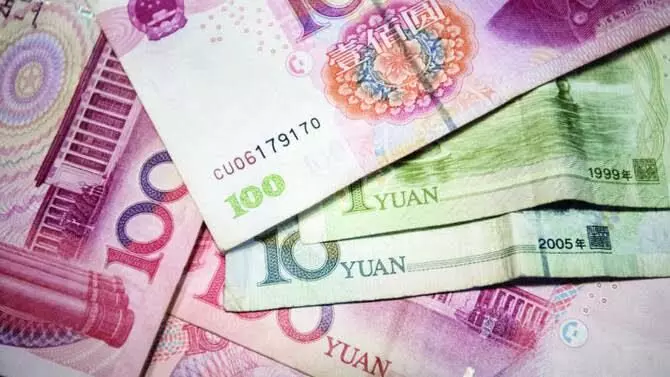
Saudi Arabia considers accepting yuan for Chinese oil sales instead of dollars
text_fieldsIn a move that would dent the U.S. dollar's dominance of the global petroleum market, Saudi Arabia is in active talks with Beijing to price some of its oil sales to China in yuan, people familiar with the matter said.
The world's largest crude exporter, which has been in talks with China over yuan-priced contracts for six years, has sped up the negotiations, the Wall Street Journal reported Tuesday.
The likelihood of a potential deal between Saudi Arabia and China has picked up recently, according to the Journal. The longtime Mideast ally has grown unhappy with the US due to the Biden administration's reluctance to do more in the Yemen civil war and its push to revive the Iran nuclear deal.
Saudi officials have earlier expressed their shock by the precipitous U.S. withdrawal from Afghanistan last year.
China buys more than 25% of the oil that Saudi Arabia exports, and if priced in yuan, those sales would boost the standing of China's currency, and set the Chinese currency on a path to becoming a global petroyuan reserve currency.
The offshore yuan erased earlier losses after the report, yet investors from Nordea Investment Management to Generali Insurance Asset Management said it changes little for the dollar's status as the world's reserve currency.
The offshore yuan climbed as much as 0.1% to 6.3867 per dollar, close to the session peak it reached during Asian trading. The currency had weakened as much as 0.3% in U.S. trading before the report on Saudi Arabia.
"I don't know if it is really real," said Guillaume Tresca, a senior emerging-market strategist at Generali in Paris. "It happens at a moment when the geopolitical order is moving. The Saudis are trying to play with what they can. It is just a signal sent to the U.S. they want more consideration."























